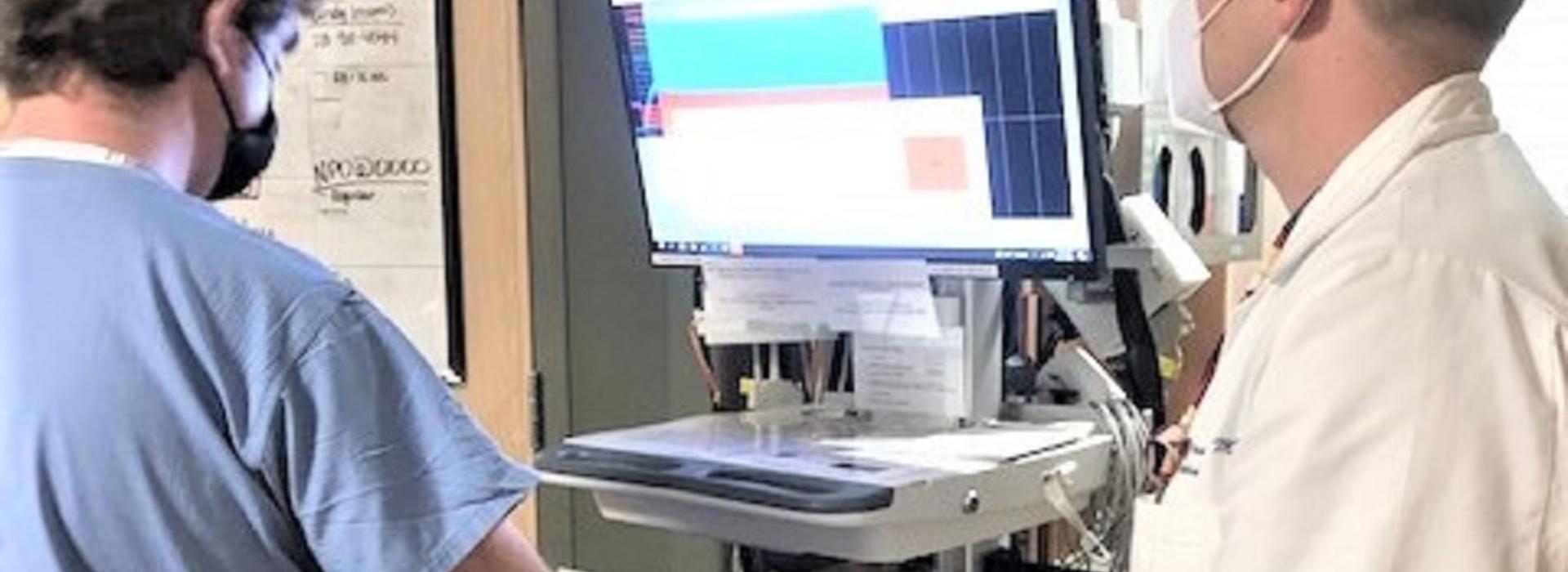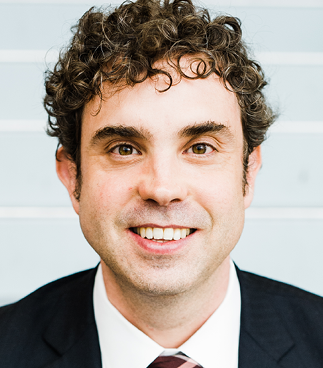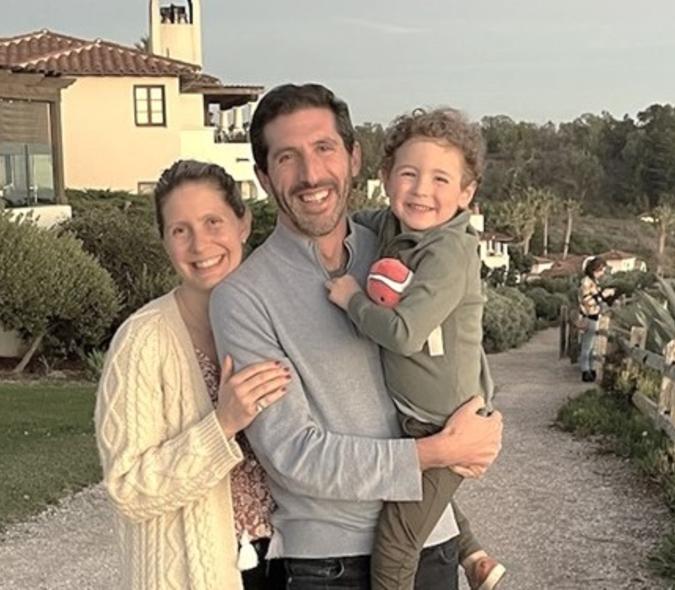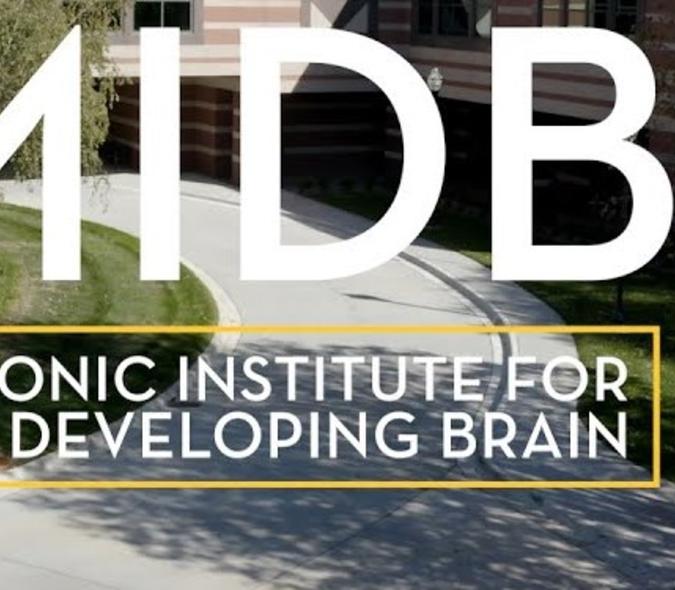
Department researcher using K23 grant to take a unique approach to learning more about cognitive effort
Assistant Professor Alexander Herman, PhD, LP, can count the years since he completed a research residency in the Psychiatry and Behavioral Sciences Department on one hand. That – among a myriad of other things – made him a perfect candidate for a National Institute of Drug Abuse K23 grant. This type of mentored grant, which is designed to boost the career of a young investigator, isn’t given to just anyone. “The science has to be interesting and well justified,” said Herman. “The K23 grant is also right at the intersection of basic, translational, and clinical research, so we have to think carefully about the potential for clinical impact.”
Herman’s K23, officially known as a Mentored Patient-Oriented Research Career Development Award, funds five years of both research and education. The focus of his research is to improve cognitive effort – a mental function that is impaired in conditions such as depression, substance abuse, and Parkinson’s disease. “Cognitive effort is the experience of doing something that feels mentally effortful and results in mental fatigue, which makes it even harder to do,” explained Herman.

For example, someone with a substance abuse disorder may find that many goal-oriented mental activities, such as maintaining focus on a task at work, feel exceptionally effortful, leading them to abandon or avoid such activities. On the other hand, they may be willing to exert a substantial amount of cognitive effort to obtain their substance of choice, according to Herman (pictured here). “We think there is an imbalance in the relative costs and benefits of different kinds of mental work,” he said. “We want to understand why.”
Using different lenses
Herman is looking at cognitive effort through several different lenses. He is also an investigator for the U’s Udall Center of Excellence for Parkinson’s Disease. Partnering with David Darrow, MD, MPH, of the Neurosurgery Department, he is exploring cognitive effort in Parkinson’s disease. “Individuals with the movement disorder Parkinson’s Disease often have executive dysfunction, and we will think this is in part due to a change in their cognitive motivational system, which shares common neural substrates with movement,” said Herman.
Under the auspices of the K23, Herman and Darrow are exploring the brain’s circuitry related to cognitive effort. To do that, they’re working with people who need to have direct brain recordings made for epilepsy treatment. “The origin of their seizures is mapped out in preparation for treating their condition, and while that’s going on, we ask the patient to participate in tasks that require cognitive effort,” Herman said. “We watch activity in parts of the brain that we believe are important for cognitive effort and then target them with brain stimulation to see if it makes it easier or harder to do those tasks.”
Little is known
Herman admits that little is known about how cognitive effort is being regulated in the prefrontal cortex of the human brain. “This gives us a unique opportunity to look directly inside the brain to map out some of the circuitry involved in regulating it,” he said. “And to use brain stimulation to test hypotheses in a causal way about how parts of the brain contribute to cognitive effort.”
Taking this route to collecting their data makes sense. “We can’t record from the brains of people with substance abuse disorders,” said Herman. “We can only do so in animal models, which is inherently limited. This is a step closer to helping us understand the circuits in the brain involved in decision making, which is very important in human drug addiction. This work will generate clear, testable hypotheses for modulating cognitive effort in people with addictions.”
Additional education
Research isn’t the only thing Herman will do under the auspices of the K23. The award requires him to gain additional education. “The training plan isn’t the main focus but it’s just as important as the research,” he said. “I am learning about things such as how to deliver direct brain stimulation during cognitive tasks that enable us to detect a predictable outcome in behavior that’s interpretable in the context of the recordings themselves.” And he is spending time with his mentors, which include Kelvin Lim, MD (primary); and Alik Widge, MD, PhD, from the Psychiatry & Behavioral Sciences Department; Ben Hayden, PhD; David Redish, PhD; and Angus MacDonald, PhD; from Neuroscience, and Sameer Sheth, MD, PhD, from the Baylor College of Medicine Neurosurgery Department. Herman is also working with epileptologist Tom Henry, MD, from the U’s Neurology Department and Alexander Opitz, PhD, from Bioengineering.
Herman recognizes that work like this is highly collaborative. “There are lots of different pieces that must be put together,” he said. “Without the environment we have here at the University, it would be impossible. I think it’s very important because we’ve done a lot of work in animal studies in psychiatry and think we’ve made all this progress, but it is often challenging to translate that progress to humans. That’s why I think it’s critical to do this kind of work, even though we’re not working directly with people who have substance abuse disorders. If we understand how decision-making processes are affected in one condition, it will enable us to determine what we might do in another patient population.”
Building a lab
Herman’s plan is to build an NIH-funded lab with Darrow to develop personalized neuromodulation treatments for people with a range of neuropsychiatric conditions that share common cognitive and mood problems. “There is an underlying cognitive machinery that if we better understood it, we could differentially target it to improve decision making,” he said. “Right now, my main focus is on collecting data, doing analysis, writing papers, and growing the work with more grants.”
Learn more about the Herman Darrow Neuroscience Lab.



